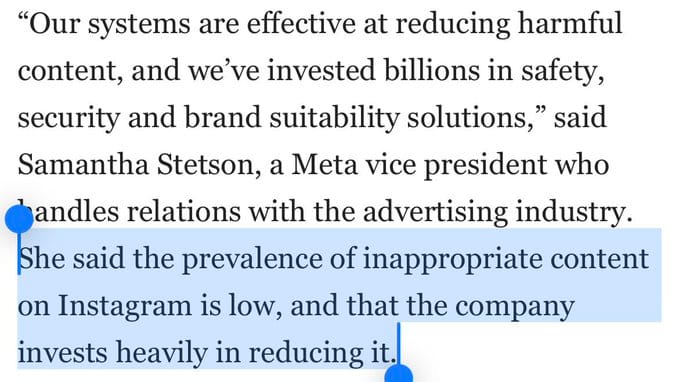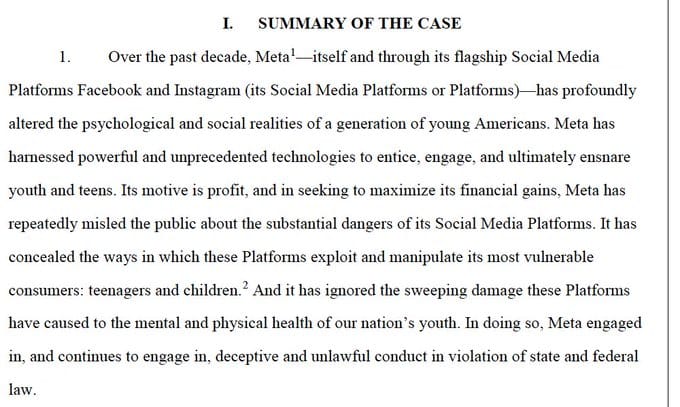Introduction In a significant legal challenge, Meta Platforms, Inc., the parent company of social media giants Facebook and Instagram, is currently facing a lawsuit from 33 U.S. states. The lawsuit alleges that Meta knowingly pursued and allowed users under the age of 13 on its platforms, a claim that puts the social media conglomerate in a contentious position regarding its user policies and practices.
The Allegations The core of the lawsuit centers around accusations that Meta, under the leadership of Mark Zuckerberg, intentionally designed and marketed its platforms to attract users below the age of 13. This demographic is protected under various laws, including the Children’s Online Privacy Protection Act (COPPA), which imposes certain requirements on operators of websites or online services directed to children under 13 years of age. The states allege that Meta’s actions not only violated COPPA but also compromised the safety and privacy of underage users.
Facebook’s 2012 Controversy: Ethical Dilemmas in Psychological Experimentation
Implications for Meta
This legal action presents a significant challenge for Meta, as it scrutinizes the company’s user engagement strategies and their alignment with legal and ethical standards. The lawsuit could lead to substantial financial penalties, stringent regulatory oversight, and a mandate for changes in how Meta operates its platforms, particularly in relation to young users.

 The Broader Context
The lawsuit against Meta reflects growing concerns over the impact of social media on young audiences. Issues such as data privacy, exposure to harmful content, and the psychological effects of social media usage are at the forefront of public discourse. This case could set a precedent for how social media companies manage underage users and could catalyze broader regulatory actions in the tech industry.
The Broader Context
The lawsuit against Meta reflects growing concerns over the impact of social media on young audiences. Issues such as data privacy, exposure to harmful content, and the psychological effects of social media usage are at the forefront of public discourse. This case could set a precedent for how social media companies manage underage users and could catalyze broader regulatory actions in the tech industry.
Meta’s Response Meta has yet to formally respond to the lawsuit. However, the company has previously stated its commitment to protecting young users and has implemented various measures aimed at safeguarding their experience on its platforms. The outcome of this lawsuit could prompt Meta to further refine these measures or overhaul its approach to youth engagement.
Conclusion The multi-state lawsuit against Meta marks a critical juncture in the ongoing debate over the responsibilities of social media companies in protecting underage users. As the legal proceedings unfold, they will undoubtedly influence public and regulatory expectations of how social media platforms operate and engage with younger audiences. This case could serve as a watershed moment in defining the boundaries of ethical social media practices.
